Related Research Articles

The Italian governorate of Montenegro existed from October 1941 to September 1943 as an occupied territory under military government of Fascist Italy during World War II. Although the Italians had intended to establish a quasi-independent Montenegrin kingdom, these plans were permanently shelved after a popular uprising in July 1941. Following the Italian surrender in September 1943, the territory of Montenegro was occupied by German forces which withdrew in December 1944.

The Axis order of battle for the invasion of Yugoslavia was made up of the various operational formations of the German Wehrmacht and Waffen-SS, Italian Armed Forces and Hungarian Armed Forces that participated in the invasion of Yugoslavia during World War II, commencing on 6 April 1941. It involved the German 2nd Army, with elements of the 12th Army and a panzer group combined with overwhelming Luftwaffe support. The eighteen German divisions included five panzer divisions, two motorised infantry divisions and two mountain divisions. The German force also included two well-equipped independent motorised regiments and was supported by over 800 aircraft. The Italian 2nd Army and 9th Army committed a total of 22 divisions, and the Royal Italian Air Force had over 650 aircraft available to support the invasion. The Hungarian 3rd Army also participated, with support from the Royal Hungarian Air Force.
The 9th Army was a World War I and World War II field army of the Royal Italian Army.
The 538th Frontier Guard Division, also known as the Division z.b.V. 538. was a short-lived German division in World War II that participated in the invasion of Yugoslavia. It was disbanded immediately after the Yugoslav surrender.
The Fast Army Corps or Cavalry Army Corps was a Royal Italian Army army corps during World War II that participated in the invasion of Yugoslavia.
The VI Corps was a corps of the Royal Italian Army during World War II that participated in the invasion of Yugoslavia.
The XI Army Corps was a corps of the Royal Italian Army during World War II that participated in the invasion of Yugoslavia.
The Motorized Corps was a corps of the Royal Italian Army during World War II which existed between June 1939 and May 1942.
The XIV Corps was a corps of the Royal Italian Army during World War II that participated in the invasion of Yugoslavia.
The XVII Army Corps was an army corps of the Royal Italian Army during World War II.
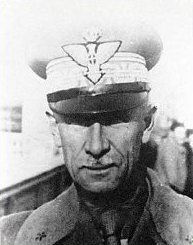
Federico Ferrari Orsi was a general in the Royal Italian Army during World War II.
Riccardo Balocco was a general in the Royal Italian Army that commanded the V Corps during the World War II Axis invasion of Yugoslavia in April 1941.
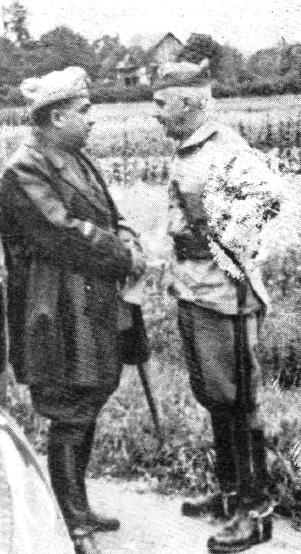
Mario Robotti was a general in the Royal Italian Army who commanded the XI Corps during the World War II Axis invasion of Yugoslavia in April 1941.
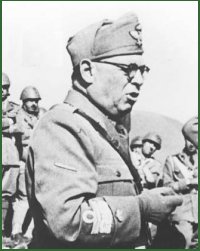
Francesco Zingales (1884-1959) was a general in the Royal Italian Army during World War II.
Giuseppe Pafundi was a general in the Royal Italian Army who commanded the XVII Corps during the World War II Axis invasion of Yugoslavia in April 1941.
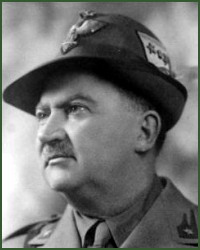
Gabriele Nasci was a general of the Alpine Corps in the Royal Italian Army.
The Army of the Po, numbered the Sixth Army, was a field army of the Royal Italian Army during World War II (1939–45).
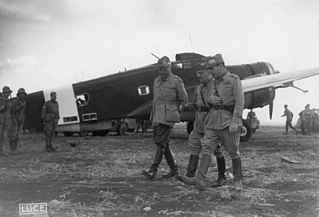
Curio Barbasetti, Count of Prun was an Italian general during World War II, Chief of Staff of the Italian High Command in North Africa in 1942-1943 and Governor of Montenegro from July to September 1943.
Luigi Mentasti was a general in the Royal Italian Army who commanded the XIV Corps during the Italian occupation of Montenegro.

Ercole Roncaglia was an Italian general during World War II.
References
- Nafziger, George (1997). "Italian 2nd & 9th Army – Invasion of Yugoslavia – 5 April 1941" (PDF). Combined Arms Research Library Digital Library. Archived from the original (PDF) on 22 March 2014. Retrieved 20 July 2013.